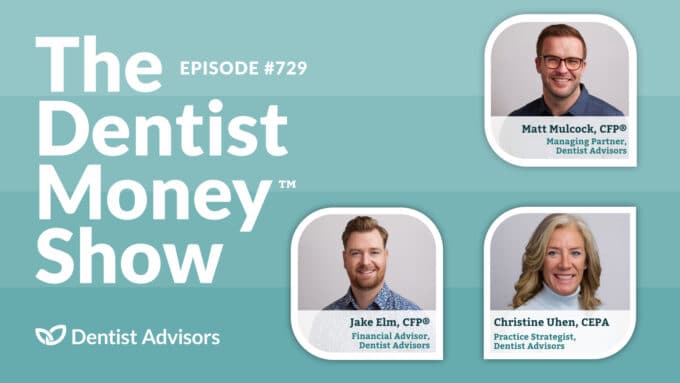You have a lot to keep tabs on. Learn how to be more organized—and download our helpful checklist of things you should track.
This advice might sound too basic, but the overwhelming majority of dentists and specialists I meet with have a lot of work to do in one important area – financial disorganization. Financial disorganization can delay your retirement and create unnecessary financial stress during your career.
You have a lot to keep tabs on. You accumulate loans, tax returns, investments, insurance policies, corporate entities, trusts, wills, appraisals, contracts, and much more. The more stuff you collect, the harder it is to stay on top of everything.
You Don’t Know What You Don’t Know
A few months ago, I experienced a far-too familiar situation. I sat down to meet with a successful specialist approaching retirement. He told me about his large practice, a solid investment portfolio, great real estate property, and plenty of cash. He estimated he would retire within the next few months and simply wanted some help to figure out how to invest the money he would get after selling the practice.
Based on his outlook, I figured he would be in great shape. I collected all of his documents, and took inventory of his assets and debt. He was unsure as to the exact amount of money he spent every month, so we started to automatically track his personal spending for the first time in his career. This would allow us to accurately predict his retirement income needs.
He was spending a lot more money than he thought and he had some debts on his credit report he assumed were already paid off. His retirement portfolio was entirely taxable, significantly decreasing the amount of income he could receive. His social security check wasn’t as large as he assumed, and his real estate wasn’t worth quite as much as it was appraised for years ago. Additionally, he had a tax liability that he had incurred due to some improper accounting (his mistake, not his CPA’s mistake).
Unfortunately, this scenario is far too common. And most people think it will never happen to them. What started as an early retirement turned into extended employment, liquidation of some key family property, and a reduction in lifestyle during retirement.
The way he remembered everything, simply wasn’t accurate. And so many of his decisions over the preceding 10 years were made on these inaccurate assumptions.
He didn’t really know exactly what he had, nor what everything was worth. These mistakes could have been easily avoided by getting some help earlier in his career.
Memory is Limited & Inaccurate
As seen in the story, unorganized people often rely on just memory. This is too hard, especially for successful business owners. What usually happens, is they forget important financial facts and it results in missed opportunities and poor decisions because they rely on a limited frame of reference.
If you are like 99% of business owners I know, you can only remember so much before you start to lose track of important information.
Getting organized allows you to see a holistic picture so you can prioritize the financial decisions that increase your personal wealth. It also allows you to keep up with the essentials like filing your taxes and entering data into Quickbooks.
Checklist of Important Financial Documents
To help you get started, I built a checklist of essential financial items you should collect at least once a year.
Many lack the time or ability to get organized on their own. If that’s the case, then hire someone to do it for you. A competent financial advisor will be able to help you accurately track and measure all of your important financial affairs. If you already have a financial advisor and you still feel unorganized, then hire a new advisor who can take the stress off your shoulders and keep you feeling squared away.
So download the checklist and pile up everything on the corner of your desk. Then just give us a call. We’re here to help!




